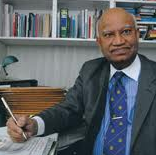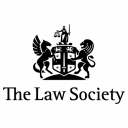THE PROCESS of mediation runs parallel with conventional legal process. Parties and/or their professional advisers can, on case and at any time, elect to engage in the process of mediation, with such involvement typically falling outside conventional legal process. Mediation is a voluntary process that involves the appointment of a third-party neutral who, on behalf of the parties, assists the negotiation process with a view to helping the parties reach suitable terms of settlement.
Importantly, as the process is ‘interests based’ and not ‘rights based’, it enables parties to look for an outcome that may meet a variety of needs beyond just what they are entitled to under the law.
Making demands
The process typically involves the third-party neutral, or mediator, acting in the capacity of a facilitator. The mediator does not advise, provide any opinion or express any views about the strengths and weaknesses of a party’s case or possible outcome. However, there is evidence to suggest that many parties who engage in the process of mediation are increasingly placing demands on mediators to be more evaluative. Although this appears to run contrary to the traditional view, as well as being opposed by many practising mediators, we cannot simply ignore this shift in client expectation.
Enter, the role of the expert witness. In many cases that are referred to mediation the timing of the referral itself is significant. If a case is referred early and before the issues in dispute are clearly defined there is some evidence to suggest that mediation will not be that effective. I have heard this issue being described as ‘when is a case ripe for mediation?’
If the issues are not clearly defined, how can a party truly assess whether a proposed settlement is in their interests? On the other hand, if a case is referred to mediation too late the increased legal cost can distort the balance of the negotiation process.
In my experience the most appropriate timing appears to be just after the exchange of expert reports but before the huge costs associated with the preparation of witness statement commence.
Profound impact
The quality and accuracy of the expert report can have a profound impact on whether or not a case will proceed to mediation. It needs to be persuasive and to clearly demonstrate the strength of the client’s position. If, after the exchange of expert reports, the parties agree to engage in the mediation process, the reports will be used as a starting point to support the respective legal arguments.
It will be from this strong base that parties will, through the mediator, attempt to explore solutions that are in the best interests of each of the parties. However, if the mediator is called on to provide any view or evaluation, and provided that he or she is happy to do so (and that in doing so it will be with the full agreement of all parties), the evaluation will usually be based on the detail of the expert reports.
It is important to emphasise that any evaluation should not be confused with giving advice or providing a form of determination. The mediator, in agreeing to express a view or provide an evaluation, is not doing so with any legal authority. It will simply be used to aid further discussion about agreeing an outcome that is in the interests of the parties.
More helpful
Whether this shift in client expectation for mediators to be more evaluative will continue remains to be seen. All that is apparent at the moment is that some parties do find it more helpful for mediators to adopt a more interventionist approach rather than conduct a purely facilitative role.
Experts should be aware of this. Some sectors of the legal community will argue against any endorsement of this trend, but it does appear that the role of expert witnesses is likely to increase.



 “Speculate before you accumulate. I am a long term regular writer and advertiser in 'Your Expert Witness - the Solicitor’s Choice'. This investment pays me substantive dividends; I get more Expert Witness work with every issue. Not only solicitors and barristers but also judges seem to read it. It is a win-win situation. Success breeds success; I must continue to write and advertise.”
“Speculate before you accumulate. I am a long term regular writer and advertiser in 'Your Expert Witness - the Solicitor’s Choice'. This investment pays me substantive dividends; I get more Expert Witness work with every issue. Not only solicitors and barristers but also judges seem to read it. It is a win-win situation. Success breeds success; I must continue to write and advertise.”
























































































































